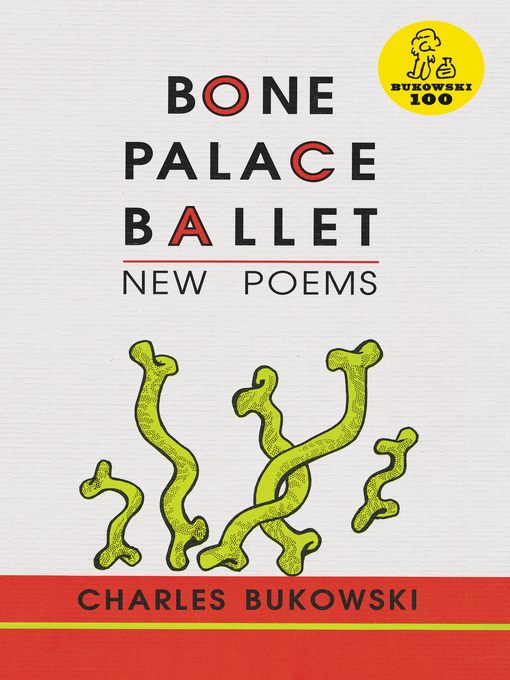
Bone Palace Ballet
کتاب های مرتبط
- اطلاعات
- نقد و بررسی
- دیدگاه کاربران
نقد و بررسی

June 3, 2002
Even as he approached death, Bukowski (1920-1994) remained a poet contemptuous of transcendence. From its first section, "As Young As We Were Ever Going to Get," to its last, "the big guy doesn't have me out of here yet," this posthumous collection of new poems revels in the substance of thoroughly earthy--and often sordid--experiences. Bukowski chronicles his own lusts, bad behavior and wry observations. The first section shows the young Bukowski staring up the skirt of a sexy English teacher and discovering the comfort of literature in his early dysfunctional home. The second section, "the streets were all I saw," tells stories from Bukowski's early adulthood, when he spent his time starving "in a roominghouse and/ pretending to be a writer." Not surprisingly, Bukowski (Betting on the Muse, etc.) romanticizes the visits to whores and barroom escapades, remembering his drunken youth as a time when there was a "feeling of/ joy and gamble in/ the air." The third and fourth sections contain stories from his adulthood and some startlingly clear impressionistic sketches. In the final section, Bukowski stares down the reaper and takes stock. Receiving bags full of letters telling him "what a great writer I am," he confesses, "I read everything, dump every-/ thing, go about my/ business.// I am aware that no man is/ a `great' writer." It's this kind of unadorned self-awareness that allows Bukowski to observe the world, have a laugh and mind his own business--all the while reeling off memorably candid poems that don't take themselves too seriously.

August 1, 1997
This posthumous collection of poems by Bukowski (Pulp, LJ 6/1/96) is a wonderful swan song. The settings remain mostly the same--taprooms, race tracks, and back alleys--and the themes largely unchanged--fragile relationships, heavy drinking, and the art of writing. However, one new theme that surfaces in this collection is the acceptance of death and old age. Bukowski knows he faces death and seeks "the grave to find a more/ comfortable/ position." He realizes that death will be his final act, and he will be "alone but not lonely." Accepting it, he writes with clarity and precision--"I will write the stuff only for myself/ and to myself"--and goes on to realize that in death he will "no longer defile these pages/ with my raw and simple/ lines." The only drawback of this work lies in a handful of weaker poems that show Bukowski attempting to be clever, and this is when he fails. For the most part, however, readers will see Bukowski at his best. Highly recommended.--Tim Gavin, Episcopal Acad., Merion, Pa.

May 15, 1997
Legend is that Bukowski--spiritual papa of poetry slams, perfpos (i.e., performance poets), and any other aggressively populist poetry manifestations of today--used to haul his ugly mug and a case of beer on stage and read until beer or consciousness was gone. If it isn't true, it ought to be, for it is the kind of bad boy gesture out of which he constructed his poetry, his prose, and certainly his fictional alter ego, Henry Chinaski, if not his own life. The 175 previously uncollected poems gathered here appear mostly in biochronological order, beginning with poems about Bukowski-Chinaski's childhood and ending with poems reflecting on his old age. Each poem is a little nugget of roughneck-intellectual autobiography or attitude (in the contemporary slang sense of the word; it is easy to imagine that, if he became a writer, Bart Simpson would be another Charles Bukowski), and each is pretty enjoyable, especially with a brew at hand. ((Reviewed May 15, 1997))(Reprinted with permission of Booklist, copyright 1997, American Library Association.)

























دیدگاه کاربران